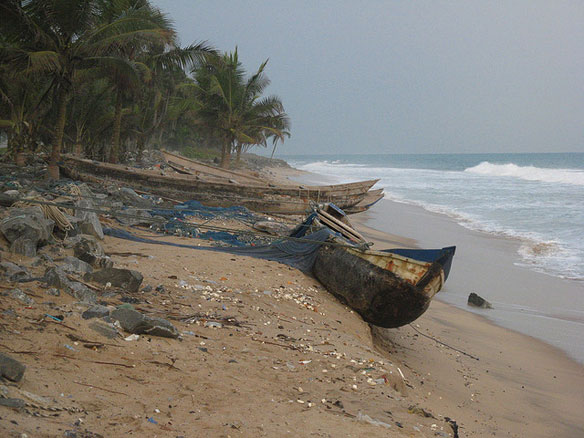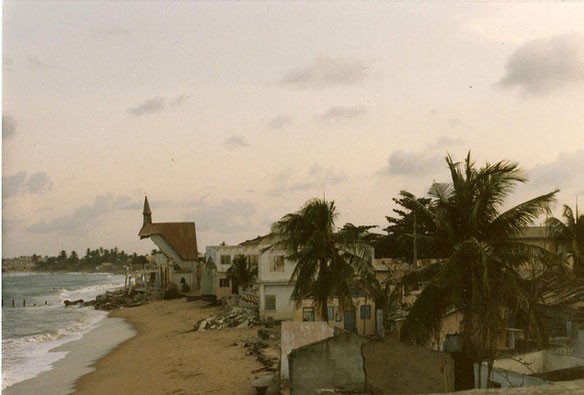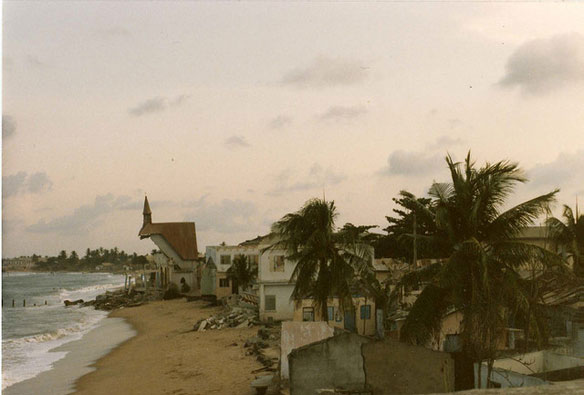
Fishing boats precarious position illustrating rapid erosion, a serious problem widespread in the Cape Coast region. Photo Source: Dano Roelvink / Currents / US Navy
Excerpts from, Office Upholds Navy’s Startegic & Humanitarian Focus, US Navy Currents Winter 2010
Despite The tropical temperatures, the beach at Ada Foah on the Eastern coast of Ghana, is much like the tip of an iceberb. As anyone knows, most of the ice in an iceberg is hidden below the surface. Similarly, for Ghana, the real story of coastal erosion is not about what lies at the water’s edge, but what occurs beneath the waves offshore. The Office of Naval Research (ONR) is investing and partnering in research that could lessen the impacts of Ghana’s eroding coastline such as loss of structures, human life and economic well-being.
A tremendous amount of sand lays just offshore many beaches, as invisible as the bulk of an iceberg, until the supply of sand is disrupted and the shoreline begins to disappear. A small fishing village near the mouth of the Volta River, Ada Foah, is only one of many beaches on the coast of Ghana that are eroding.
In the capital city of Accra, an estimated 70 percent of the beach is eroding at rates exceeding 3 feet per year.
Ghanaian scientists and students attending the University of Ghana are working with investigators from the Coastal Geosciences Program at ONR to expose the hidden workings’ of Ghana’s largely unexplored nearshore environment…
Read Original Article and View Images, Currents / US Navy

Severe coastal erosion, Keta, Ghana.
Ghana is undergoing much erosion. Keta is part of the Volta Delta Region, some think the Volta dam prevents silt for depositing and leads to greater erosion. Captions and Photo source: ©© Beth Knittle









